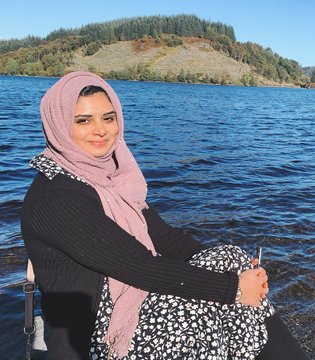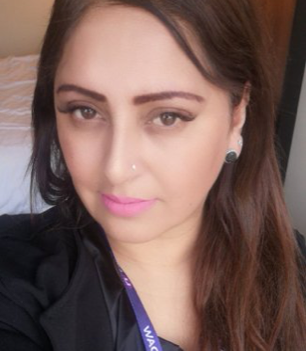Kidney Matters Deputy Editor, Sumaya, reflects on her experience of Ramadan since her kidney disease diagnosis.
“As we draw close to the end of Ramadan, I cannot help the feeling of guilt. I keep asking myself, have I done enough? Have I made the most of this month? Other Muslims like me, who suffer from chronic kidney disease, probably ask themselves the same questions.
“This is because we cannot fast. And although people like me are exempt from fasting, there is a sense of loss.
“My family has always celebrated Ramadan, and it’s something I’ve observed since I was very young. It’s a time for quiet reflection and self-discipline so, after eating suhoor, the early morning meal, I would often pray and read. I would continue my day at school, university, or work, and would see many people eating and drinking around me.
“And although this was difficult, a few days into Ramadan my body started to adjust, and it got easier. By the end of the day, I felt the sense of a personal victory, knowing that I had completed my fast for my spiritual growth. This was not to last, however.
“I was diagnosed with kidney failure in my early twenties, and whilst this was sudden and unexpected, I had no idea how much my life was to change. Now, several years after my diagnosis, I am happy and content, but there is one thing that I have struggled with for many years which is not being able to fast.
“Many people tell you not to let kidney disease take over your life, and whilst I agree, I felt that I was robbed of being able to fast in Ramadan. It was part of my identity, part of my childhood and part of my belief as a Muslim.
“After years of tears, anguish and resentment, I have accepted it. It helped to know that I am exempt from fasting, and that there is no expectation for me to fast. Instead, I learned that I am rewarded in the same way as someone who fasts. Understanding that Ramadan is more than just refraining from food and drink also helped me. I can still pray, self-reflect, and grow spiritually.
“Ramadan also encourages us to act with generosity and give charity. In this month Muslims are obligated to give a portion of their wealth to charity (zakat); like many others, I take part.
“As we draw closer to the end of Ramadan, not all is doom and gloom. It has been a long tiresome journey to get to where I am today, but I am content with whatever I achieve this month.”
Rehana is Ambassador for Bradford Teaching Hospitals. Following her diagnosis and treatment for kidney disease, she was struck by the impact that not being able to fast had on her during Ramadan.
“I was transplanted eight years ago and to me my transplant means everything. It means that I can work, travel, and enjoy independence from dialysis. As a Muslim, Ramadan is a very important time of the year. But this month also brings with it grief and sadness.
“I am unable to fast because I have to take medication, drink plenty of fluids and eat healthy balanced meals throughout the day. And as I begin to accept that I cannot experience this, I’m faced with another challenge.
“During Ramadan, there is an assumption within my community that everyone is fasting. So often, we don’t see Muslims eating or drinking during the day. And as many are not aware that I have had a kidney transplant, I feel I shouldn't have to explain this whenever I get asked the dreaded question of why I am not fasting.
“At times when I’m out, I find myself eating and drinking discreetly, or in quiet places. Because Islam exempts you from fasting if you are ill, I don’t feel bad – I know I still get the reward. Instead, I enjoy the many other things this month brings, such as the development of my soul, self-reflection and giving charity. To my fellow CKD patients who struggle this month, remember we are exempt and enjoy the many other blessings this month brings.”

